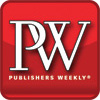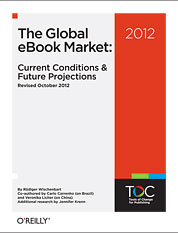
Publishing News: The SCOTUS “first sale” ruling spells trouble ahead for publishers
Publishers react to Kirtsaeng ruling, School of Data Journalism returns to festival, and a look at publishers' struggles to remain relevant.
Publishers express disappointment in SCOTUS “first sale” ruling
Headline news this week was the U.S. Supreme Court’s ruling in favor of the student textbook seller in Kirtsaeng v. John Wiley & Sons, Inc., in which the court upheld the “first sale” doctrine in the case of copies of copyrighted material lawfully made outside the U.S. Jeff John Roberts reported the gist of the ruling at PaidContent:
“Writing for the majority, Justice Stephen Breyer rejected John Wiley’s argument that the phrase ‘lawfully made under this act’ implied a geographic limitation. He also cited the concerns of library associations, used-book dealers, technology companies, consumer-goods retailers, and museums — all of which had urged the court to reject the restricted notion of ‘first sale.'”
Andrew Albanese rounded up reactions to the ruling in a post at Publishers Weekly. Wiley president and CEO Stephen M. Smith said, “It is a loss for the U.S. economy, and students and authors in the U.S. and around the world.” Read more…

Change is the vehicle for publishing’s future, not the catalyst of its demise
Intel futurist Brian David Johnson on the future of publishing — and why there will be one.
At the recent TOC conference in New York, Intel futurist Brian David Johnson (@IntelFuturist) gave a keynote address about changing the future. It’s so simple, he said, but changing the future requires us only to “change the story that people tell themselves about the future that they will will live in.” He noted that as writers and publishers, we are not only in control of the narrative, but that we are masters of it, and it’s our job to continue reaching people and changing the narrative, regardless of changing devices or methods of delivery — it’s the story, the narrative, that matters. (You can watch Johnson’s keynote on YouTube.)
I had a chance to sit down with Johnson to talk about the future of publishing and fear of change. He said the beauty of it is that the publishing industry can change and adapt to continue to give readers and consumers what they want. Read more…

A Nate Silver book recommendation engine
The algorithm's role in discovery and serendipity
It’s NCAA tournament time here in the U.S. and plenty of bracketologists are turning to Nate Silver for his statistical expertise. Silver, of course, is known for his book, The Signal and the Noise, as well as predicting presidential elections and Major League Baseball player performance. I’m not aware of any statistical analysis he’s done in the book recommendation space but I know someone who has applied Silver’s thinking to help us figure out what book we should read next.
I’m talking about Stephanie Sun and a terrific article she wrote called Nate Silverizing Book Recommendations. I encourage you to read the entire piece, even if it’s been awhile since your last statistics class.

SCOTUS “first sale” ruling a big win for everyone but content publishers and software makers
Attorney Dana Newman on the implications of the Supreme Court ruling in Kirtsaeng v. John Wiley & Sons, Inc.
The U.S. Supreme Court ruled in Kirtsaeng dba Bluechristine99 v. John Wiley & Sons, Inc. yesterday, upholding the “first sale” doctrine in the case of copies of copyrighted materials lawfully made outside the United States. O’Reilly GM and publisher Joe Wikert (@jwikert) quoted from the majority decision in a post about his surprise at SCOTUS’ decision:
“Putting section numbers to the side, we ask whether the ‘first sale’ doctrine applies to protect a buyer or other lawful owner of a copy (of a copyrighted work) lawfully manufactured abroad. Can that buyer bring that copy into the United States (and sell it or give it away) without obtaining permission to do so from the copyright owner? Can, for example, someone who purchases, say at a used bookstore, a book printed abroad subsequently resell it without the copyright owner’s permission?
“In our view, the answers to these questions are, yes. We hold that the ‘first sale’ doctrine applies to copies of a copyrighted work lawfully made abroad.
I reached out to transactional and intellectual property attorney Dana Newman (@DanaNewman) to find out what the ruling means in the short term and what broader implications the decision might hold. Read more…

Building an ebook business around analytics
What happens when a web publishing business enters the ebook space?
AskMen, “the leading online magazine for men,” has just launched an ebook publishing program, using the PressBooks Publisher Platform to manage the front-end catalog/website, and back-end ebook production. In the year-and-a-bit since PressBooks launched publicly, we’ve worked with many traditional book publishers, big and small. But what’s most interesting to us is non-traditional book publishers entering the ebook space, because they have the flexibility to approach book publishing in whole new ways.
Especially interesting to us are successful web publishers, mainly because web publishers have the most direct understanding of their readers, and reader behaviour. This skill, and approach, will be critical, we believe, as book publishing evolves. Web publishing is an analytics-driven business. In the ebook world, timely analytics are very hard to come by. And generally, analytics is not something most book publishers prioritize in their business. We believe this will change, as book publishing becomes increasingly digital.
In the interview below, I explore the issue of web vs. ebook analytics with Emma McKay, managing editor of AskMen’s online magazine, and the leader of their ebook publishing program.

The Kirtsaeng ruling: What’s your opinion?
This wasn't the outcome I was anticipating
Wow. I’m very surprised by the Supreme Court’s ruling in the Kirtsaeng vs. Wiley case. I figured it would go the other way. Here’s a nice summary of the majority opinion from the Supreme Court (you’ll find more detailed analysis here):
Putting section numbers to the side, we ask whether the “first sale” doctrine applies to protect a buyer or other lawful owner of a copy (of a copyrighted work) lawfully manufactured abroad. Can that buyer bring that copy into the United States (and sell it or give it away) without obtaining permission to do so from the copyright owner? Can, for example, someone who purchases, say at a used bookstore, a book printed abroad subsequently resell it without the copyright owner’s permission?
In our view, the answers to these questions are, yes. We hold that the “first sale” doctrine applies to copies of a copyrighted work lawfully made abroad.

What devices and formats do your customers prefer?
Your future content plans can be shaped by asking these questions
Most publishers create ebooks in all formats figuring it doesn’t matter whether mobi is more important than EPUB or if the content is read on an iPad more frequently than on a mobile phone. That approach means these publishers have no idea how their content is being consumed. It also means they probably don’t have a direct channel to their customers or some other way of polling them on their preferences.

Publishing News: A used ebook market may hold more opportunity than risk
A brighter side to used ebook resale, the Google Reader dustup, and a look behind the Financial Times' digital success.
Opportunities in used ebook resale
With the recent patents filed by Apple and Amazon to create used digital resale platforms and digital resale company ReDigi’s ongoing court case that will weigh in on the legality of reselling used digital goods, many are concerned about how digital resale would affect revenues for publishers and authors. MediaShift’s Jenny Shank checked in on author concerns and talked with John Scalzi and Ayelet Waldman to get their thoughts — both writers expressed deep concerns that if allowed, digital resale would create insurmountable revenue issues for most writers.
“I think all the ways we chip away at the possibility of writers to earn a living ultimately makes it less likely that we’ll have a chance to read a wide variety of works,” Waldman told Shank. Read more…

Publishers, this is the time to be brave
John Ingram on the importance of taking risks in our environment in transition.
One of the major themes at the recent TOC conference in New York was addressing — and overcoming — the fear of change many in the industry are experiencing in today’s volatile publishing environment. I had an opportunity to sit down with John Ingram, CEO and chairman of Ingram Content Group Inc., to talk about those fears from a publisher’s perspective and how he and his company are approaching the changing landscape. Read more…






 Radar
Radar  Radar on
Radar on  Radar on
Radar on  Radar on
Radar on  Radar on
Radar on